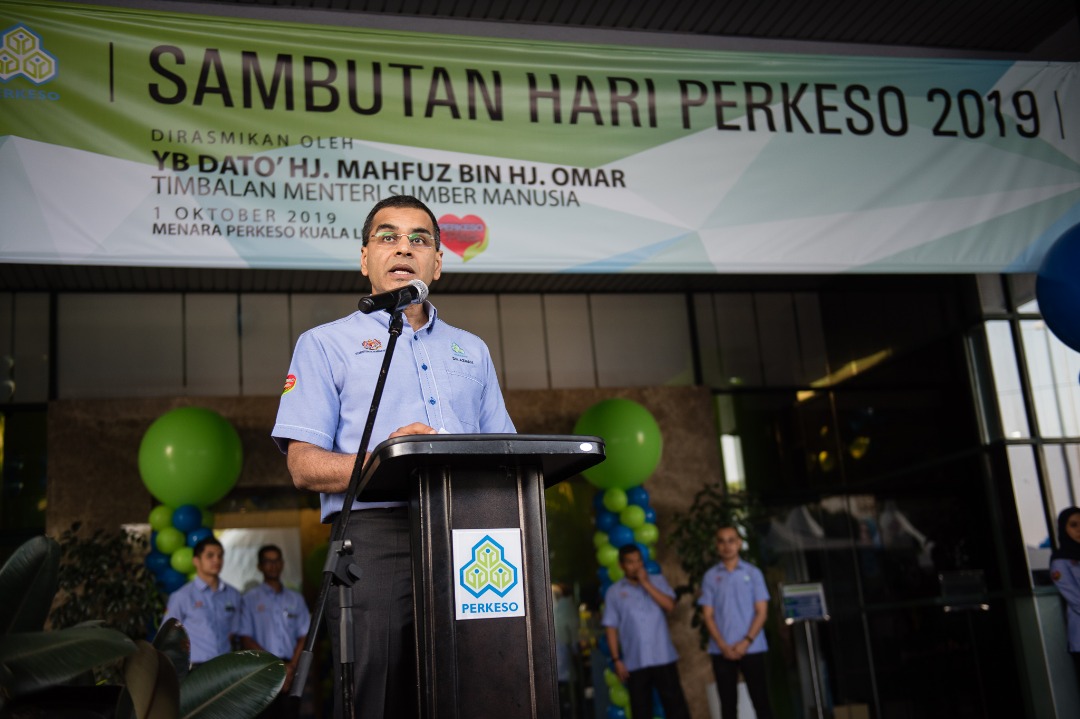KUALA LUMPUR, Dec 17 — The Social Security Organisation (Socso) has revealed a disturbing trend of Malaysians applying for invalidity pensions, especially when approaching retirement, despite not being genuinely invalid.
According to Socso CEO Dr Mohammed Azman Aziz Mohammed, the social security fund received about 38,000 applications for invalidity pensions last year, marking a continuous upward trend in such claims over the past decade, even as Malaysia is becoming an ageing society.
However, half of those claims, he said, were due to noncommunicable diseases like cardiovascular and cerebrovascular conditions, and diabetes complications.
Besides getting older, Malaysians are also getting sicker, facing a rise of non-communicable diseases like diabetes, high blood pressure, and high cholesterol.
“Remarkably, a large percentage of these claims came within just a few years prior to the applicants’ retirement. Only a portion of these claims were confirmed to be genuinely invalid,” Dr Mohammed Azman said in a statement.
He explained that a permanent disability caused by an illness or injury may not necessarily lead to permanent unemployability, which means that it is not considered an invalidity.
Age-linked degenerative diseases like back and neck pain, high blood pressure, coronary disease, heart attack, and tumours, the Socso CEO said, “cannot be an excuse for not working”.
“Most of these diseases are treatable and patients can perform daily tasks and continue working. Despite that, some workers with these diseases choose to discontinue working as they consider themselves invalids. In this case, they can work but they refuse to work,” he said.
Dr Mohammed Azman said Socso — which mainly protects employees against occupational injuries and invalidity — has also received applications for invalidity pensions from slightly ill people who claimed to be incapable of working.
“More often than not, they are nearing retirement age and our invalidity pension is seen as a form of financial security for their retirement years.”
Dr Mohammed Azman Aziz Mohammed, CEO of Socso
“The fact is that invalidity is decided by a panel of independent experts on Socso’s medical board, based purely on the treatment and prognosis of the illness or injury,” he said.
Invalidity applications to Socso comprise several types of applicants: a Socso-insured person is disabled from illness or injury so severely that they cannot earn money; an insured person suffers from invalidity due to a specific permanent condition that is incurable or not likely to be cured, and is no longer capable of earning from work at least one-third of the earnings of an able person; the condition of invalidity must occur before the age of 60.
“In such cases, the invalidity condition is justified for a social security benefit, ie the invalidity pension,” said Dr Mohammed Azman.
“Socso often receives applications for invalidity pensions from workers who sustained an illness or injury resulting in a certain level of impairment but who are still capable of working. In these cases, the social security approach is to facilitate their return to work so they can continue being productive members of society.”
Socso urged the government to establish a national old-age pension scheme to take care of Malaysians post-retirement, as more than five million Malaysians are projected to be above 60 by 2030.
“It is imperative for the country to have an old-age scheme so that Malaysians will no longer wrongly assume that the invalidity pension scheme will pay for their unproductive years, as this assumption threatens the sustainability of Socso funds.”
Private workers’ retirement savings in Malaysia are covered by the Employees’ Provident Fund (EPF), but only a reported 18 per cent of members in 2017 reached the minimum savings target of RM228,000 by age 55. EPF revised this target from RM228,000 to RM240,000 effective January 1 this year, a quantum that is meant to support basic needs for 20 years upon retirement until age 75.
“At Socso, we believe the best form of social security is the ability to work, put food on the table and be financially secure,” said Mohammed Azman.
Prime Minister Dr Mahathir Mohamad, however, said last September that the government would not raise Malaysia’s retirement age from 60 to 65, claiming that a later retirement age would prevent younger people from filling job vacancies.








